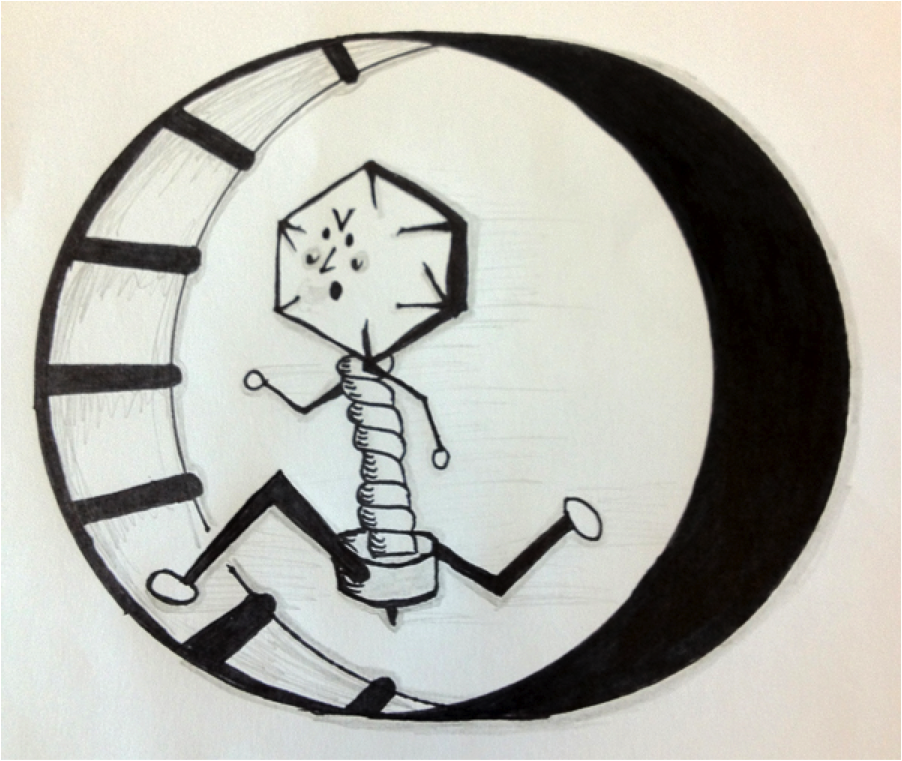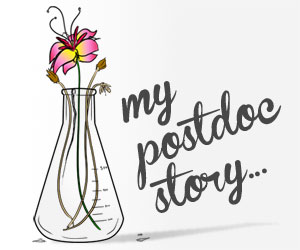 While nearly all of us face challenges during our postdoctoral years, we often feel alone in our struggles. In this series, we hope to share encouraging and uplifting stories of how other scientists were able to turn their situation around and move forward, despite a non-ideal situation. Like snowflakes, fingerprints, and nightmares, every postdoctoral experience is unique, so today we share the Postdoc Story of another successful scientist.
While nearly all of us face challenges during our postdoctoral years, we often feel alone in our struggles. In this series, we hope to share encouraging and uplifting stories of how other scientists were able to turn their situation around and move forward, despite a non-ideal situation. Like snowflakes, fingerprints, and nightmares, every postdoctoral experience is unique, so today we share the Postdoc Story of another successful scientist.
Flyceum: Your Science. Your Career.
We’re following in the tradition of open discussions among scientists that has resulted in important advances in both science and society.
My Postdoc Story: Staff Scientist, @27andaPhD
by
Make Up Your Mind! When Phosphorylation Turns Enzymes “ON” or “OFF”
by
 Previously, I told you about how phosphorylation can turn some enzymes on, and other enzymes off. In my new Enzyme Corner article here on BenchFly, as I’m quite fond of doing I throw yet another monkey wrench into the machine. Today, we discuss how some enzymes can be both activated and inactivated by phosphorylation.
Previously, I told you about how phosphorylation can turn some enzymes on, and other enzymes off. In my new Enzyme Corner article here on BenchFly, as I’m quite fond of doing I throw yet another monkey wrench into the machine. Today, we discuss how some enzymes can be both activated and inactivated by phosphorylation.
Harnessing the Neuroscientist, Author and TV Star: Mark Changizi, PhD
by
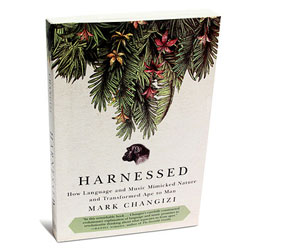 As scientists it’s easy to fall into the trap of focusing so narrowly on our projects that we lose sight of how we fit in to the world around us. Luckily for us, there are folks like our friend Mark Changizi, PhD, neuroscientist and author, who tackle the questions that are so big (Why do we see in color?) we often miss them. In his most recent work, Harnessed, Changizi proposes that music evolved to fit our brains, not vise versa. In fact, noises we’re keenly aware of in nature–like the sounds of humans moving in our midst–serve as the building blocks for music. We listen to the sounds of nearby humans to determine whether someone is coming or going, threatening or peaceful, near or far–and we prepare our response accordingly. Music then, having been designed from those sounds, elicits an instinctual emotional response, which helps explain why throwing a loud, fast-paced speed metal album on tends to make us alert and aggressive, while delicate classical music may put us at ease.
As scientists it’s easy to fall into the trap of focusing so narrowly on our projects that we lose sight of how we fit in to the world around us. Luckily for us, there are folks like our friend Mark Changizi, PhD, neuroscientist and author, who tackle the questions that are so big (Why do we see in color?) we often miss them. In his most recent work, Harnessed, Changizi proposes that music evolved to fit our brains, not vise versa. In fact, noises we’re keenly aware of in nature–like the sounds of humans moving in our midst–serve as the building blocks for music. We listen to the sounds of nearby humans to determine whether someone is coming or going, threatening or peaceful, near or far–and we prepare our response accordingly. Music then, having been designed from those sounds, elicits an instinctual emotional response, which helps explain why throwing a loud, fast-paced speed metal album on tends to make us alert and aggressive, while delicate classical music may put us at ease.
Let’s Talk About (Fruit Fly) Sex
by
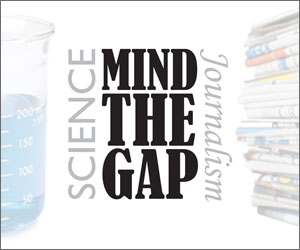 The fruit fly Drosophila melanogaster has been the preferred model system for the study of numerous biological processes for decades, if not centuries. These little beasts are amenable to genetic manipulation, are relatively easy to keep in captivity, and have all sorts of physical traits that make them useful to scientists. Even though I work with frogs, I spend at least half my time reading about flies.
The fruit fly Drosophila melanogaster has been the preferred model system for the study of numerous biological processes for decades, if not centuries. These little beasts are amenable to genetic manipulation, are relatively easy to keep in captivity, and have all sorts of physical traits that make them useful to scientists. Even though I work with frogs, I spend at least half my time reading about flies.
This is Not an Article About Running Viruses…
by
…but when I saw the headline “scientists generate electricity from viruses” this is where my mind went:
Who’s Really Pursuing the Alternative Career in Science?
by
 These days it’s hard to escape the “alternative” label – alternative energy, alternative lifestyles, alternative medicine, alternative music, and of course, alternative careers. Prefacing a term with “alternative” implies those who find themselves in the “alternative” category have somehow strayed from the “normal” or “accepted” track. Nowhere is this stigma felt more than in science, where for decades researchers have been trained to pursue the “traditional” career path (aka, academics) or else risk finding themselves floating in the middle of the amorphous “alternative” pool (aka, all other careers). But does this perception accurately reflect today’s reality?
These days it’s hard to escape the “alternative” label – alternative energy, alternative lifestyles, alternative medicine, alternative music, and of course, alternative careers. Prefacing a term with “alternative” implies those who find themselves in the “alternative” category have somehow strayed from the “normal” or “accepted” track. Nowhere is this stigma felt more than in science, where for decades researchers have been trained to pursue the “traditional” career path (aka, academics) or else risk finding themselves floating in the middle of the amorphous “alternative” pool (aka, all other careers). But does this perception accurately reflect today’s reality?
Cell Culture Derailing Your Vacation Plans?
by
I maintain a line of particularly finicky cells as an integral part of my project. They need some kind of maintenance every 2-3 days, which isn’t a big deal other than the fact that finding vacation time is nearly impossible. I’m not sure I trust them to a lab mate and if I were to bleach them and go back to a frozen stock after the vacation, it would be about three weeks before I could start doing experiments again, which my boss makes me feel guilty about every time I bring it up. Any thoughts on how to get away?
Erin, graduate student
How is a Dormouse Like a Career Scientist?
by
 No it’s not predation by large owls, it’s strategic reproduction.
No it’s not predation by large owls, it’s strategic reproduction.
As anyone in academia knows, when to start a family is a really tricky decision. If you follow the traditional career path from college (4 years), to grad school (5-7 years), through a postdoc (3-6 years), perhaps another postdoc (3-6 years), into a tenure track position (5 years) which finally leads to a tenured faculty job (eternal) there really is no “good time” to pop out a baby or two.
PhD Tales from the Couch: The Age of Anxiety
by
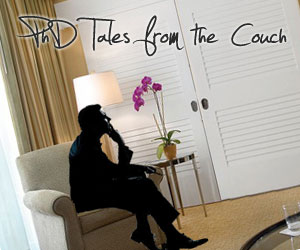 “It was the best of times, it was the worst of times, it was the age of wisdom, it was the age of foolishness, it was the epoch of belief, it was the epoch of incredulity, it was the season of Light, it was the season of Darkness, it was the spring of hope, it was the winter of despair, we had everything before us, we had nothing before us …”
“It was the best of times, it was the worst of times, it was the age of wisdom, it was the age of foolishness, it was the epoch of belief, it was the epoch of incredulity, it was the season of Light, it was the season of Darkness, it was the spring of hope, it was the winter of despair, we had everything before us, we had nothing before us …”
This quote from A Tale of Two Cities by Charles Dickens can perhaps sum up the feeling of anxiety we all experience at certain times, when our life flip flops between complete despair and a promise of success. This may be especially true if you are a graduate student or a post-doc dealing with work-related stress brought about by a number of factors. As someone in a trainee position at the start of our scientific careers in the academic or corporate hierarchy, we are no strangers to stress. We work in the environment loaded with anxiety triggers: sometimes we feel powerless working in a state of perpetual uncertainty and lack of control, always exposed to extreme competitiveness and limited resources, long working hours, failed experiments, harsh criticism from reviewers or committee members, unrealistic demands from the adviser, and let’s not forget the “Publish or Perish” formula of the Ivory Tower. An article titled Grad School Blues published in The Chronicle Review reports that “Graduate school is gaining a reputation as an incubator for anxiety and depression.” As such, we are chronically exposed to anxiety triggers.
Sharing PhD Tales from the Couch with Yevgeniy Grigoryev
by
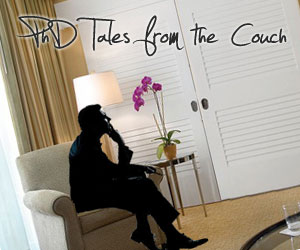 Editor’s note: Obtaining a PhD is undoubtedly an intellectually challenging endeavor. However, many of us are unprepared for the extent of the mental hurdles we face on the road to our degree. Stress, loneliness, panic, anxiety, uncertainty, and depression are commonplace in most scientists’ career development at some point, yet these emotional struggles are rarely discussed openly. Couple this with the fact that many researchers find their work and sacrifices unappreciated by family, friends, and society at large and the strain can become overwhelming. At times it feels as though we’d benefit more from a therapist than from a PI.
Editor’s note: Obtaining a PhD is undoubtedly an intellectually challenging endeavor. However, many of us are unprepared for the extent of the mental hurdles we face on the road to our degree. Stress, loneliness, panic, anxiety, uncertainty, and depression are commonplace in most scientists’ career development at some point, yet these emotional struggles are rarely discussed openly. Couple this with the fact that many researchers find their work and sacrifices unappreciated by family, friends, and society at large and the strain can become overwhelming. At times it feels as though we’d benefit more from a therapist than from a PI.

